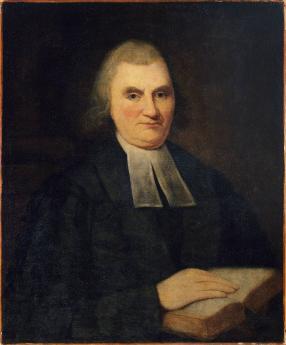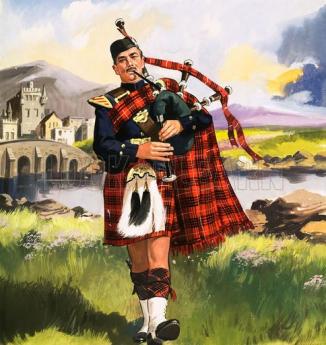Related Topics
Connecticut Invades Pennsylvania!
Connecticut once waged three serious wars with Pennsylvania, and we don't even remember it. But politicians noticed that all became peaceful after we united into a single nation. Others noticed the Articles of Confederation were strong enough to cope with invasions by neighbor states. The two proprietorships of New Jersey taught some smaller lessons. Virginia taught still other lessons.
Academia in the Philadelphia Region
Higher education is a source of pride, progress, and aggravation.
Revolutionary Philadelphia's Patriots
All kinds of people were patriots in 1776, and many of them were all mixed up about what was going on and how they stood. Hotheads in the London Coffee House stirred up about an inoffensive Tea Act, Scotch-Irish come here to escape the British Crown, the local artisan class and the local smuggler class, unexpectedly prospering under non-importation, and the local gentry -- offended to be denied seats in Parliament like other Englishmen. Pennsylvania wavered until Ben Franklin stepped forward with a plan.
The Scotch-Irish In the Revolution

|
| Dr. Witherspoon |
The most eminent Scotsman in Colonial America was the Reverend Dr. Witherspoon, an eminent Presbyterian minister and President of the College of New Jersey, later Princeton University. Already at the top of the academic heap in Scotland, he was recruited for Princeton on the advice of Benjamin Franklin, who knew his political sentiments well. From England, Witherspoon made the following exhortation to his future compatriots at the critical moment of the Declaration of Independence:

|
| Scottish Pipers |
"To hesitate at this moment is to consent to our own slavery. The noble instrument on your table, which insures immortality to its author, should be subscribed this very morning by every pen in this house. He who will not respond to its accents and strain every nerve to carry into effect its provisions is unworthy the name of freeman. Whatever I may have of property or reputation is staked on the issue of this contest; and although these gray hairs must descend into the sepulcher, I would infinitely rather that they descend hither by the hand of the executioner than desert at this crisis the sacred cause of my country."
On the humbler level of popular doggerel, was the following:
"And when the days of trial came,
Of which we know the story,
No Erin son of Scotia's blood
Was ever found a Tory. "
It may not be quite true that the Scotch-Irish immigrants started the Revolution, or led it, or did most of the serious fighting. But in Pennsylvania their role was decisive. New England started most of the trouble, the aristocrats of Virginia quickly rose to the challenges of chivalry, but Pennsylvania was not so darned sure about this business. The back-country Germans were perfectly content to farm the richest topsoil they ever heard of, the Quakers were peaceful and prosperous just as they were. It was the Scotch-Irish of the frontier, needing no pretext of Tea Taxes or Stamp Acts to hate the English King, who were ready to take the musket off the wall at the slightest provocation.
It is indeed puzzling in retrospect to wonder what the English Kings were trying to achieve. Having driven the Scots out of their Scottish homeland into Ireland where they would be less bother, they subsequently drove them out of Ireland as well. The short explanation has been offered that James II who was to be driven off the throne for his Catholic leanings, had seen Ireland as a fall-back refuge in case of trouble and wanted it safely Catholic. So in anticipation of what did indeed happen under William and Mary, he wanted the Presbyterians out of there.
There is perhaps some logic to this, but try telling it to a Scot.
Originally published: Tuesday, October 24, 2006; most-recently modified: Wednesday, May 29, 2019